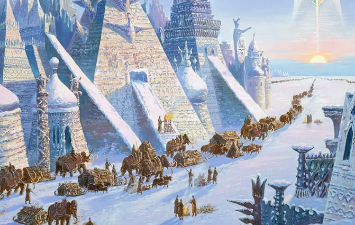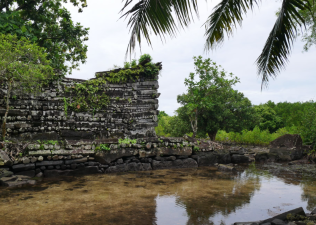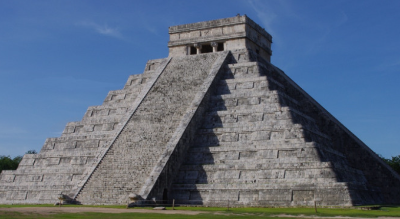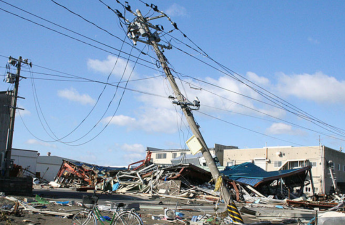Was There Really a Lost Civilization Before the Ice Age?
Throughout Earth's history, there have been several ice ages and global climate shifts, the most notable of which are ice ages.
The most recent was the last glacial age, which lasted from approximately 18,000 to 11,000 years ago. An ice age is a significant drop in Earth's surface temperature, resulting in large-scale glaciers covering continents and oceans. Although humans have not directly experienced an ice age, archaeological and geological research indicates that human evolution and civilization were influenced by ice ages. During these periods, global temperatures dropped, glaciers expanded, and glacial periods and interglacial periods alternated. Human ancestors appeared approximately 2 million years ago, but ice ages have existed for much longer than that. So, have humans experienced ice ages?
An ice age is a global climate change that typically lasts for thousands of years. Over the past millions of years, Earth has experienced numerous ice ages and interglacial periods, a cycle of cyclical climate change known as the glacial cycle. The most recent ice age occurred approximately 16,000 years ago and lasted for about 10,000 years. During this period, Earth's surface temperature dropped by about 5°C, and vast ice sheets covered the Northern Hemisphere continents, including Antarctica and Greenland.

◉ Archaeology Reveals Early Civilizations
New archaeological discoveries suggest that complex civilizations may have existed on Earth in prehistoric times. The discovery that civilized humans settled on Earth at an earlier time may rewrite the timeline of human origins. Archaeologists have long believed that human civilization began after the last ice age, around 9,600 BC. However, with the end of the ice age, the vast ice sheets covering Europe and North America gradually melted, allowing our ancestors to develop agriculture and, around 4,000 BC, to develop more complex economies and social structures. This new discovery may indicate that human civilization originated much earlier than previously believed.
Long-held myths and legends about the origins of human civilization now appear to be gradually being unraveled. New archaeological research suggests the possibility of complex civilizations in prehistoric times, significantly pushing back the origins of human civilization.

◉ Megalithic Structures in Indonesia
Dr. Danny Natawidjaja, a geologist at the Indonesian Institute of Sciences, suggests that lost prehistoric civilizations such as Atlantis, long considered mythical by archaeologists, may have actually existed. Since 2011, Dr. Natawidjaja and his team have been conducting geological surveys at a site approximately 100 miles outside Bandung, Indonesia. In 1914, they discovered a megalithic structure composed of columnar basalt atop a hill. These megaliths formed five abutments, known locally as Volcano Padang.
Drilling revealed that Volcano Padang is actually a 300-foot-high pyramid staircase. Using radiocarbon dating, they further dated the abutment structures to between 500 and 1,500 years ago. Even more astonishing, when the team used a tubular drill to probe deeper beneath the surface of the columnar basalt blocks, they discovered that these structures extended even further beneath the surface, dating back to between 20,000 and 22,000 BC.
A detailed examination of Volcano Padang revealed an ancient pyramidal structure, revealing signs of a lost civilization.

◉ Ancient Greek Philosophy and the Younger Dryas
The ancient Greek philosopher Plato also proposed that highly developed civilizations flourished during the last Ice Age. In conversations with scholars, he recorded that Atlantis sank due to floods and earthquakes around 9,000 BC. Modern science dates this event to 9,600 BC, at the end of the Ice Age.
Loss and Rebirth in Human History
For those civilizations that once flourished but ultimately vanished, we cannot predict whether similar relics or events will reappear in the future. But what is certain is that human history, like a seed of time, repeatedly sprouts and regenerates amidst catastrophes and disasters.
The legacies of these prehistoric civilizations convey not only ancient knowledge but also profound insights for the future. Perhaps our present-day wisdom stems from the sparks of that distant past.


